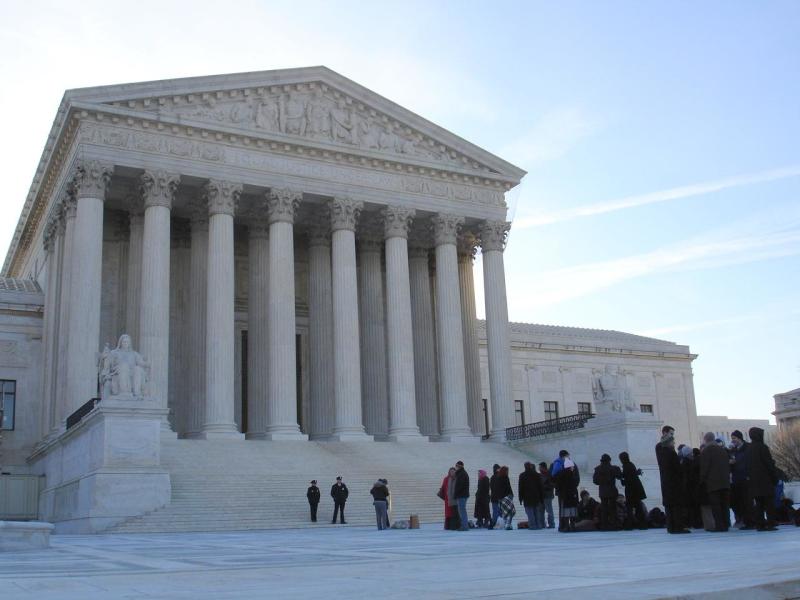
The U.S. Supreme Court will tentatively continue to allow an abortion drug to be sent by mail during the COVID-19 pandemic, despite a challenge from the Trump administration.
An order released on Thursday, Oct. 8 stated that the Supreme Court will refuse to put a hold on a nationwide injunction that blocks the Food and Drug Administration (FDA) from enforcing a rule that requires a woman seeking an abortion to receive the drug mifepristone in-person at a health-care facility. A Maryland federal judge, Theodore Chuang, issued the injunction in mid-July, arguing that the rule imposes needless risk and delay in addition to safety concerns during a pandemic. The judge wrote that the FDA requirement that a woman must receive mifepristone in person at a healthcare facility risks violating the right to an abortion set forth by Roe v. Wade. His ruling made it so that a woman seeking an abortion can be sent the pill by mail.
The Supreme Court's brief, unsigned order instructs the trial judge to "take a fresh look at the case and to rule within 40 days." Meanwhile, the in-person requirement will remain suspended. Associate justices Samuel Alito and Clarence Thomas disagreed with the order, contending in a dissent written by Alito there "is no legally sound reason for this unusual disposition." He and another Associate Justice, Clarence Thomas argued that the majority had exhibited inconsistencies in dealing with the pandemic and had effectively ruled on the case by not making a decision.
"In response to the pandemic, state and local officials have imposed unprecedented restrictions on personal liberty, including severe limitations on First Amendment rights," Alito wrote. "Officials have drastically limited speech, banning or restricting public speeches, lectures, meetings and rallies. The free exercise of religion also has suffered previously unimaginable restraints, and this court has stood by while that has occurred."
"In the present case, however," Justice Alito specified, "the district court took a strikingly different approach. While Covid-19 has provided the ground for restrictions on First Amendment rights, the district court saw the pandemic as a ground for expanding the abortion right recognized in Roe v. Wade."
He wrote that the Supreme Court clearly should grant the FDA's application. The decision, if reviewed, "is likely to be reversed," Alito said. "And if the FDA is right in its assessment of mifepristone, non-enforcement of the requirement risks irreparable harm."
Various pro-life figures expressed public concern over the court's decision.
"There's a real health concern with abortion pills that the FDA was right to address," said Elizabeth Graham, vice president of operations and life initiatives for the Southern Baptist Ethics & Religious Liberty Commission (ERLC). "The casualness of abortion truly on demand via the mail is concerning."
"This dangerous development of abortion medically and culturally does not protect women but puts them at increased risk of health complications and emotional and psychological isolation. It does not offer or connect her in any tangible way to appropriate health measures or community support," Graham said.
"Every day of delay is a day that unborn children and their mothers are at risk from these dangerous drugs," lamented Marjorie Dannenfelser, president of the Susan B. Anthony List.
A letter from July penned by over 20 pro-life leaders, including ERLC President Russell Moore, decried the use of the abortion pill as "highly dangerous for women," and posing "a four-times higher risk of complication" than a first-trimester surgical abortion, citing the American Association of Pro-life Obstetricians and Gynecologists. The ERLC and other organizations were against the use of mifepristone in the U.S. for more than a decade before the drug was approved in the '90s by the Clinton Administration.


















